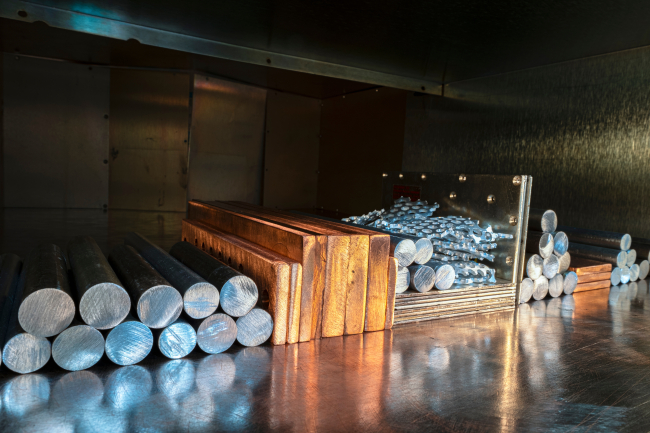Doubts about Nabucco Don't Originate in China - Look to Europe

On December 12 President Berdymukhamedov of Turkmenistan and President Hu Jintao of China inaugurated the first flows of gas through the Chinese pipeline from Turmenistan to China. This is an 1800 km pipeline to transport up to 40 bcm/y of gas from the Bagtyarlyk territory on the right bank of the Amudarya River to the Chinese Province of Xinjiang. It runs through Uzbekistan and Kazakhstan - where it can eventually gather additional gas - feeding onto China"s west-east pipeline system. The gas will come initially from five fields developed or upgraded by CNPC. The first indication of this Chinese intent was a deal with Kazakhstan in 2003, followed by negotiations below the horizon with both Uzbekistan and Turkmenistan. Basically 6 years from opening the talks to opening the pipe. It helps to have a single national company from well-head to the market.
Talks with Azerbaijan about flows of its gas towards Europe and eventually Turkmen gas have been ongoing for over 15 years. Many really thought Iranian gas would feed the pipe, and maybe it will, but not for some time. Nabucco came along early in that period (2004) after Austria decided it could well provide a hub for FSU imports and OMV began scouting the market for other interested partners. The interest was not long in developing, but it tended to be more among governments with geopolitical agendas than among companies with gas agendas. Ministers would meet and discuss, while the private sector prevaricated and simply wasn"t ready to buy Azeri gas. In the meantime, Austria has sold half of its Baumgarten hub to the Russians.
Some say the opening of the China-Turkmen pipeline spells the end of Nabucco, as if Turkmenistan holds the final piece of the Nabucco puzzle. Nothing could be further from the truth. If Nabucco has degenerated into endless talk it is because problems on the west side of the Caspian are unresolved. European gas interests are still not sure they want the gas, Turkey continues to play hard to transit, Azerbaijan plays its hand cautiously with a wary eye on its Russian neighbor and important difficult-to-resolve regional tensions are adding their own complications. If all this isn"t enough, some suggest that the August agreement on South Stream spells the end for Nabucco. Here again, this is far from the truth. South Stream is a rhetorical pipeline designed to frustrate Southern Corridor gas - in particular Nabucco. South Stream would cost too much, replicate transport capacity, not deliver Caspian gas anyway and has no other identifiable source of gas to fill it - it won"t happen.
Elsewhere, the US is producing 70-80 bcm of unconventional shale gas per year, thereby not needing roughly the same amount that it would have taken from world LNG markets. This, combined with a surge in global LNG liquefaction just now, means that LNG will be available at considerably lower prices than European contract gas or even Azeri net-back gas for some time. The take-or-pay clauses between Gazprom and European gas companies look particularly onerous just now. Add to that the temporary slump in demand due to the economic recession. As a consequence, new pipelines are not seen to be as crucial to Europe"s energy security as they once seemed. So while China ramps up its imports of Turkmen gas over the next months, a European link to Caspian gas through Turkey looks set to slip considerably further into the future. And while Turkey may continue to hope in can leverage other political and commercial objectives through its transit negotiations, its lever is probably getting shorter.
Whatever, there is room for confidence that Nabucco will continue to dominate the conferences and workshop of the Caspian chattering class - but will it ever be built?

Available in:
Regions and themes
Share
Related centers and programs
Discover our other research centers and programsFind out more
Discover all our analysesFinancial Tools for Boosting Resilience of CRM Value Chains and Strategic Stockpiling
Critical Raw Material (CRM) value chains are more vulnerable than ever and entire vital industries in Europe are now at risk if supplies are not secured through strategic and urgent actions, given mounting geopolitical confrontation, resource nationalism, growing demand and limited supply increase.
Placing the EU on a Warfare Footing: Energy and Raw Materials Priorities for 2026
The year 2025 has confirmed that one must prepare for much worse in the field of geopolitics and geoeconomics as the intensity and frequency of shocks increase and as the European Union (EU) has no more stable flanks now that crises with the United States (US) become so frequent and reveal a systemic rift. In the world, barriers to trade multiply and dependencies are weaponized.
Brazil One Year Away from the October 2026 General Elections
Brazil’s general elections will be held on October 4, 2026, to elect the president, vice-president, members of the National Congress, governors, deputy governors and state legislative assemblies. For the presidential and gubernatorial elections, a second round will be held on October 25 if no candidate obtains a majority of the votes in the first round.
COP30: An Inflection Point for Climate Action and Governance
The 30th Conference of the Parties (COP30), opening in Belém, Brazil, on November 10th 2025, convenes at a perilous moment.












